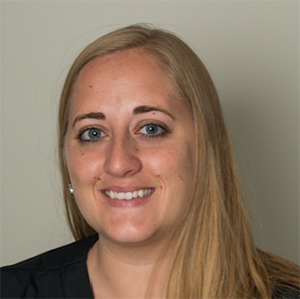International Association of Forensic Nurses: A professional networking association that also publishes the Journal of Forensic Nursing, position papers, and toolkits for continuing education.
Explore Related Nurse Specialties
Learn How to Become a Forensic Nurse in 5 Steps
Forensic nurse at a glance
Where you’ll work: Hospitals, correctional facilities and coroners’ offices.
What you’ll do: Treat incarcerated individuals as well as victims of violence and sexual assault, collect evidence, assist with autopsies, and possibly testify in court.
Minimum degree required: ADN or BSN, but some employers prefer that nurses have a BSN.
Who it’s a good fit for: Working as a forensic nurse can be very emotionally intense, because you are serving victims and/or criminals of violent crime. Aspiring forensic nurses should be highly empathetic and understand the emotional burden of what they do. They also must be honest and thorough, since they often work alongside law enforcement.
Job perks: You may be involved in criminal investigations and get to do your part in bringing criminals to justice.
Opportunities if you pursue a higher degree or certification: The International Association of Forensic Nurses offers two types of certifications for forensic nurses: Sexual Assault Nurse Examiner–Adult/Adolescent (SANE-A) and Sexual Assault Nurse Examiner–Pediatric/Adolescent (SANE-P). These certifications demonstrate your mastery in treating victims of sexual assault which could lead to more promotional opportunities and higher pay.
Median annual salary: $86,070
What Is a Forensic Nurse?
Forensic nurses provide care to incarcerated people as well as victims of abuse, trafficking, and violence. They can also serve as a liaison between victims and the legal and justice system. This nursing specialty can be very stressful and intense and requires sensitivity and compassion.
In this Article
How to Become a Forensic Nurse | Job Description | Education | Online Programs | Licensure | Gain Experience | Certification | Types of Forensic Nurses | Salary and Job Outlook | Professional Resources
How You Could Become a Forensic Nurse
Decide if forensic nursing is the right career for you.

Working with victims of assault and trauma requires emotional intelligence and mental well-being. You’ll need to be able to separate your work from your personal life and have other interests to nurture and take care of yourself if you work in this field.
Determine what education you’ll need.

To become an RN and specialize in forensic nursing, you’ll generally need to earn a Bachelor of Science in Nursing (BSN) from an accredited program. This degree takes four years to complete. You could earn an Associate Degree in Nursing (ADN) instead, but some employers may prefer a bachelor’s degree. So while an ADN takes only two years to complete, it could actually take you longer to move into forensic nursing with this degree.
Get licensed as a registered nurse (RN).

Pass the national qualifying exam and obtain licensure in your state to apply for your first nursing job. You won’t be able to practice as a nurse without a license, so preparing for this test will serve you well.
Take a certificate course to become a sexual assault nurse examiner (SANE).

Taking this 40-hour course is the most common way to move into an entry-level position as a forensic nurse. You’ll take the course after you graduate and have your license.
Consider earning professional certification.

There are two certifications for forensic nurses, one that demonstrates expertise in working with adults and the other for working with children. Professional certification demonstrates expertise in your field and could help you earn more or advance your career.
What Does a Forensic Nurse Do?
Forensic nurses provide short- and long-term care to patients who have been victims of violent crimes such as:
They also collect evidence to support criminal investigations, testify in trials, and assist coroners and pathologists in determining causes of death.
“Forensic nursing is a good path for any nurse interested in improving and supporting the health and well-being of patients affected by violence, their families, and the communities they live in,” says Nicole Stahlmann, MN, RN, SANE-A, AFN-BC, FNE-A, a forensic nursing specialist at the International Association of Forensic Nurses. “Being able to work collaboratively with other disciplines like law enforcement, advocacy, and prosecution while maintaining fundamental adherence to nursing standards is a must.”
In addition to caring for patients, forensic nurses collect evidence to support criminal investigations, testify in trials, and assist coroners and pathologists in determining causes of death.
Responsibilities of a Forensic Nurse
Like most areas of nursing, forensic nurses can have different daily tasks depending on where they work and what type of forensic work they do.
The main responsibilities of forensic nurses include:
Is Forensic Nursing a Good Fit for You?
Forensic nursing can be difficult but highly rewarding. FNs should be caring and resilient, and interested in the intersection of healthcare and criminal justice.
“If someone is considering a career in forensic nursing, it is worth spending some time reflecting on what is driving them to consider this option, and how they plan to take care of themselves,” says Stahlmann. “Vicarious trauma has a real impact on the field, so knowing how to self-evaluate and plan your own care is an important aspect of the work.”
Education for Forensic Nurses
To become a forensic nurse, you’ll need to earn an ADN or a BSN. There are pros and cons to each. For example, earning an associate degree will take less time and money. On the other hand, a bachelor’s degree will provide you with a more in-depth education.
“Many hospitals may require a BSN, but forensic nurses come from a wide variety of educational backgrounds,” Stahlmann says. “No matter the degree level, obtaining solid clinical assessment skills is a must. The International Association of Forensic Nurses (IAFN) has members who hold associate, bachelor, master and/or doctorate degrees in nursing.”
In choosing your degree, it might be worth checking out what local hospitals look for in a candidate and the requirements in your state. Stahlmann notes that some state nursing boards have specific education requirements for nurses who are sexual assault nurse examiners.
Associate Degree in Nursing
Bachelor of Science in Nursing
Online Programs
There are many accredited nursing programs that offer classes online, but note that you’ll need to do your clinical training in person at a healthcare facility.
So long as you are disciplined, motivated, and able to thrive independently, an online program can be ideal if you are a parent or have other full-time responsibilities and need a flexible schedule.
Licensure
After graduating, you’ll need to be licensed before you can practice. All prospective nurses must take and pass the National Council Licensure Examination (NCLEX-RN). The exam is pass/fail and contains both multiple-choice and fill-in-the-blank questions.
- Format: Computerized and tailored to each student by basing questions on a test taker’s answer to the previous question
- Knowledge tested:
- Safe and effective care management
- Health promotion and maintenance
- Psychosocial integrity
- Physiological integrity
- Number of questions: 75 to 265
- Time: Up to 6 hours
- Test prep resources: The National Council of State Boards of Nursing (NCSBN) administers the test and offers free study resources on its website. You can also find fee-based resources online.
After you receive official notice that you passed the exam, you can apply to be licensed through your state’s nursing board. In addition to your test results, most boards require you to submit proof of your nursing degree, and some perform background checks. You can check the requirements in your state on the NCSBN website.
Gaining Experience
Many forensic nurses start their careers as certified sexual assault nurse examiners (SANEs). This step isn’t required, but it can give you valuable education and experience before moving on to other forensic nursing roles.
Sexual assault nurse examiners serve as the first point of care for sexual assault victims. They complete forensic exams as well as provide holistic nursing care to patients.
Starting your career as a sexual assault nurse examiner can give you valuable education and experience before moving on to other forensic nursing roles.
To become a SANE, RNs must earn a certificate by taking a 40-hour class and completing 40 hours of clinical training. The course aims to prepare nurses for the physical and psychological elements that are unique to trauma and assault victims.
Certification
Earning a certification as a forensic nurse is not required, but it can help you advance your career in terms of title and pay. Certification demonstrates professional expertise and knowledge, and it can help you stand out in a field of job candidates.
Here are the two certifications forensic nurses can earn. You can only get certified in these areas after you’ve completed the more general SANE certificate course.
Sexual Assault Nurse Examiner—Adult/Adolescent (SANE-A)
Sexual Assault Nurse Examiner—Pediatric/Adolescent (SANE-P)
Types of Forensic Nurses
Forensic Gerontology Specialists
What They Do: Investigate cases surrounding elder abuse and exploitation
Where They Work: Nursing homes, hospitals, or retirement homes
Forensic Psychiatric Nurses
What They Do: Treat and manage victims and offenders with serious mental health issues or disorders
Where They Work: Hospitals, correctional facilities, behavioral facilities
Sexual Assault Nurse Examiners
What They Do: Administer care and forensic examinations to victims of sexual assault and related trauma. They also may testify in court on behalf of the victims they’ve treated.
Where They Work: Hospitals and health clinics
Forensic Nurse Investigators
What They Do: Work with law enforcement to determine the causes of unexpected or violent deaths
Where They Work: Coroners’ or medical examiners’ offices
Nurse Coroners or Death Investigators
What They Do: Examine bodies to determine causes of death and look for related evidence for crime scene investigations
Where They Work: Coroners’ or medical examiners’ offices
Legal Nurse Consultants
What They Do: Assist attorneys with cases that need medical expertise, such as medical malpractice or personal injury lawsuits.
Where They Work: Government offices, insurance companies, legal departments
Correctional Nursing Specialists
What They Do: Provide routine and specialized care to those in jail, prison, and other correctional institutions.
Where They Work: Jails, prisons, correctional facilities
Salary and Career Outlook
According to the Bureau of Labor Statistics (BLS), RNs earn a median salary of $86,070.
The BLS doesn’t distinguish among different types of nurses, but specialized nurses with a BSN tend to earn more.
The BLS says that RNs with a specialty and/or a BSN may have a competitive advantage in the job market.
Job Outlook
Job openings for registered nurses will grow 5.6% through 2032, according to the BLS, which is close to the average growth rate for all occupations.
The BLS also notes that RNs with a specialty and/or a BSN may have a competitive advantage in the job market.
Professional Resources
Networking and continuing education are important to advancing your career. Meeting other healthcare professionals and learning about the latest developments in nursing and forensics can help you discover new and exciting opportunities that you may not have heard about otherwise.
Stahlmann recommends these resources for forensic nurses:
The Sexual Assault Forensic Examiner Technical Assistance (SAFEta): This association gives nurses access to the National Protocol for Sexual Assault Medical Forensic Examinations (both adult/adolescent and pediatric), as well as other resources like the National Training Standards for Sexual Assault Medical Forensic Examiners.
IAFN Conference on Forensic Nursing Science and Practice: This annual conference gives nurses access to over 100 continuing education activities.


With professional insight from:
Nicole Stahlmann, MN, RN, SANE-A, AFN-BC, FNE-A
Forensic Nursing Specialist, International Association of Forensic Nurses


